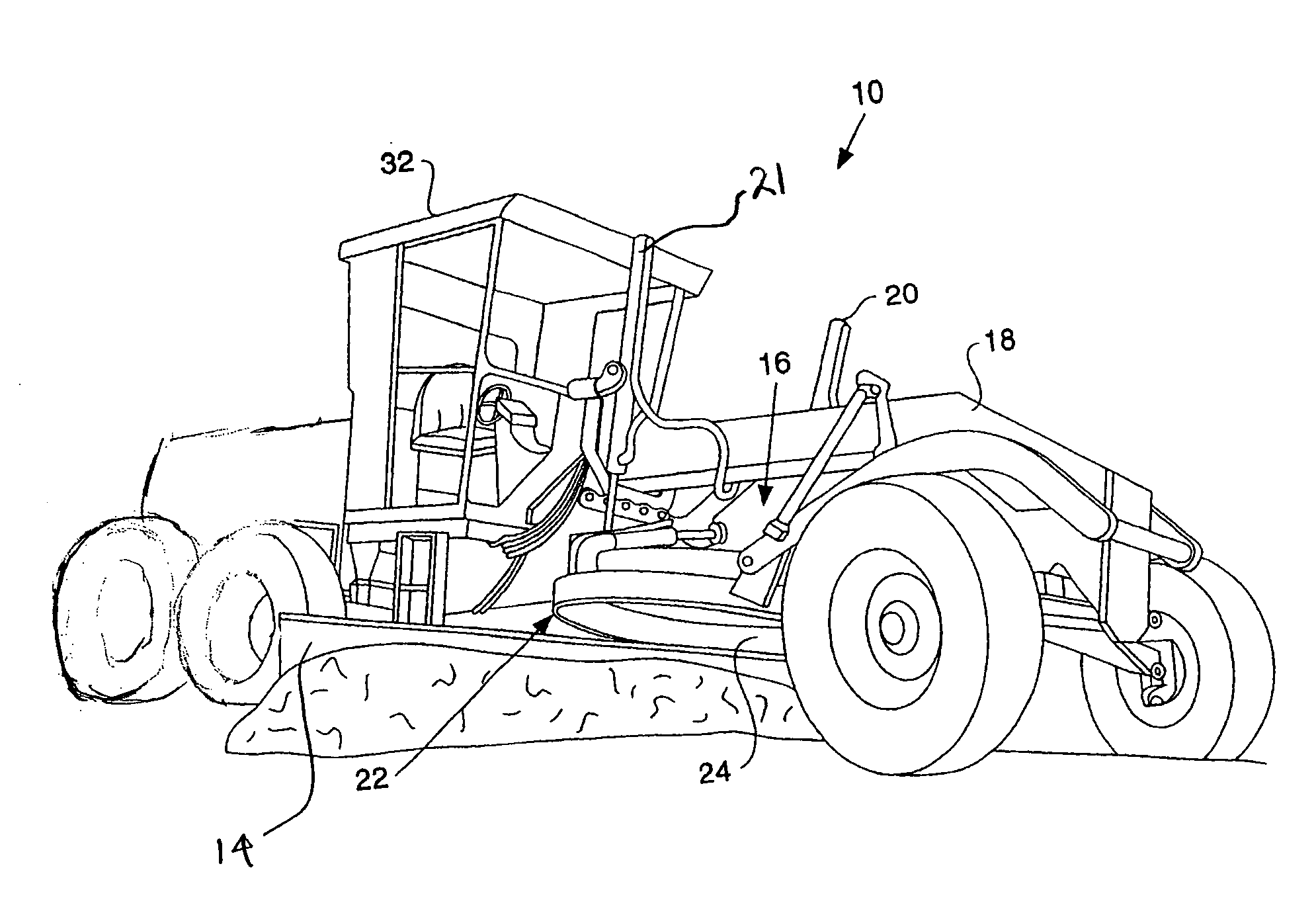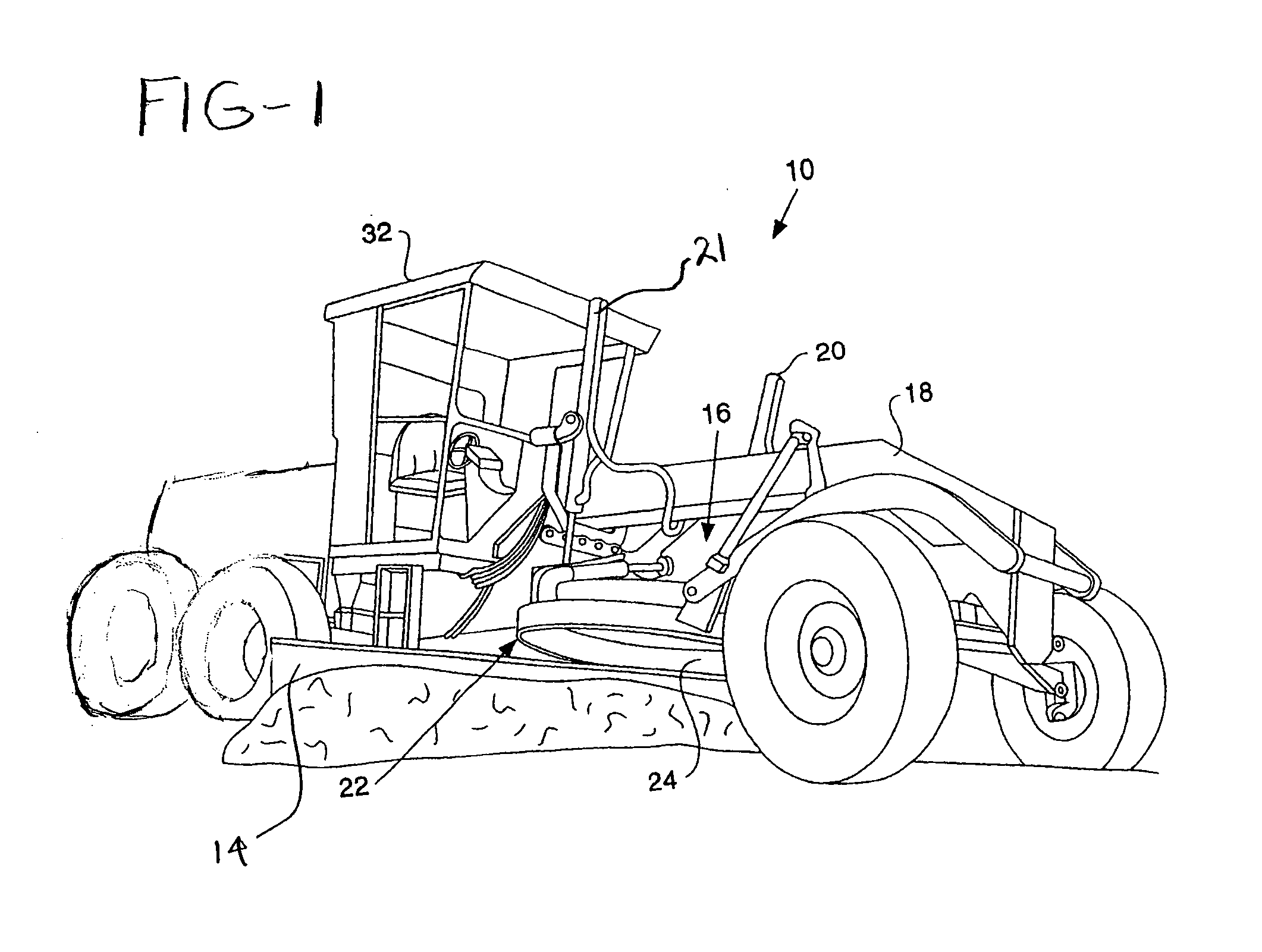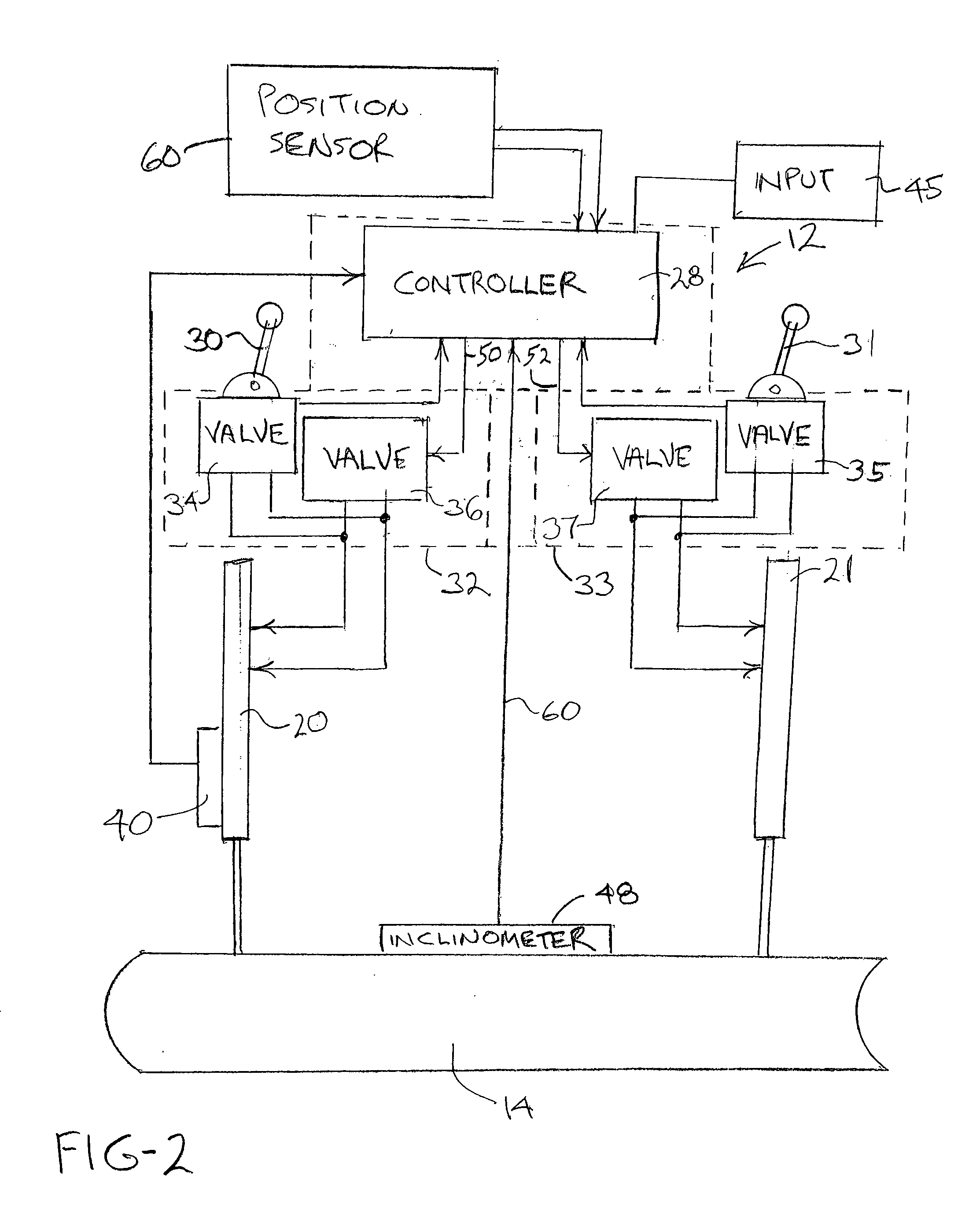Motor grader and control system therefore
a technology of motor graders and control systems, applied in mechanical machines/dredgers, analogue processes for specific applications, instruments, etc., can solve problems such as erroneous cross-slope cuts, one end of the blade being lowered or raised by a significant amount, and affecting the operation of the system, so as to achieve the desired precision and raise and lower the grader blades
- Summary
- Abstract
- Description
- Claims
- Application Information
AI Technical Summary
Benefits of technology
Problems solved by technology
Method used
Image
Examples
Embodiment Construction
[0017]Reference is made to FIGS. 1 and 2 of the drawings which illustrate the invention. The motor grader 10 includes a control system 12, shown in FIG. 2, for controlling the height of conventional grader blade 14. Blade 14 is part of a blade sub-assembly, indicated generally at 16, that is movably mounted to a frame 18 of the motor grader 10 through first and second individually controllable hydraulic motors or lift cylinders 20 and 21 that are connected between the machine frame 18 and the blade sub-assembly 16. The blade sub-assembly 16 includes a circle and circle draw bar, indicated generally at 22, and a grader blade 14 mounted to the circle. A selectively controllable circle drive (not shown) is mounted to the circle draw bar for rotating the circle and the blade about a generally vertical axis in a known manner. While the blade control system 12 will be described in detail below as applied to the motor grader of FIG. 1, it will be appreciated by those skilled in the art tha...
PUM
 Login to View More
Login to View More Abstract
Description
Claims
Application Information
 Login to View More
Login to View More - R&D
- Intellectual Property
- Life Sciences
- Materials
- Tech Scout
- Unparalleled Data Quality
- Higher Quality Content
- 60% Fewer Hallucinations
Browse by: Latest US Patents, China's latest patents, Technical Efficacy Thesaurus, Application Domain, Technology Topic, Popular Technical Reports.
© 2025 PatSnap. All rights reserved.Legal|Privacy policy|Modern Slavery Act Transparency Statement|Sitemap|About US| Contact US: help@patsnap.com



